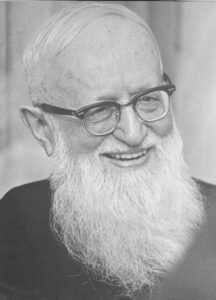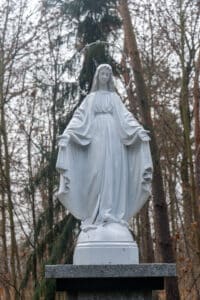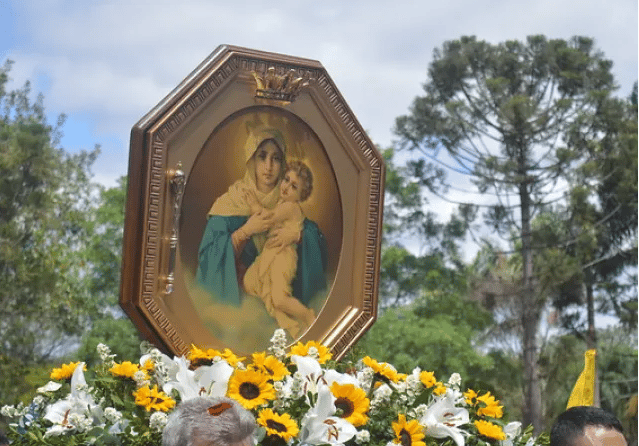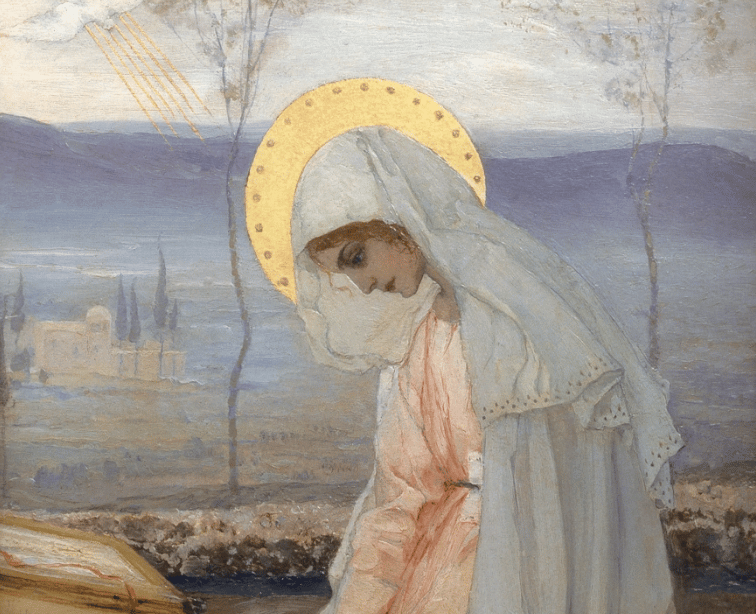Mary Immaculate Part 2
Father Günther Boll continues:
Mary Immaculate: nature and grace, a harmonious unity
What characterizes those who try “Being like the Immaculate”, what moves them?

“I found an answer to this question in my encounters with Father Kentenich; from the very beginning I was impressed by the fact that he radiated this evident intertwining of both the natural and the supernatural. With no one else have I experienced this so intensely. It also meant that you could come to him with everything and talk to him about anything. He had the unusual ability to speak about all aspects of the human being with remarkable matter-of-factness and impartiality. For him it was very clear: God created man as he is, with body and soul. That is why one can speak of everything with the reverence that is required.”
“Human first, then Christian, then wholly human.”
For him, man was always a totality: the natural and the supernatural went together: “All this was made by the good God and everything in nature has a mutual influence on everything else”. This manner of answering was immensely liberating because it was easy to comprehend. It became gradually clear to me what he saw fulfilled in the Virgin Mary as Immaculate and how he recognized from there his educational goal: The whole human being was natural and supernatural at the same time. Because he was supernatural, he was also fully human. Hence his thesis: “Human first, then Christian, then wholly human“. That was the education of the Immaculate for him. The Immaculate was for him the model, the guiding image and goal of all our education. The Immaculate in this sense means that everything human and natural, also everything physical and sexual is included in the world of grace, because everything comes from God. The more a person develops in the world of grace, the more humanly healthy and complete he or she becomes. That was his greatest desire, and he wanted to lead all those entrusted to him into this reality.
Like Mary: For him, this reality was found in the most ordinary things

In this context I understood for the first time that for Father Kentenich the Virgin Mary plays a role in some circumstances for which nothing is written in books on Mariology – and where this question could be raised: “What does this have to do with Mary?” But “from the inside” it is clear: as long as the matter deals with sensitivity and generosity, is about heartfelt and sincere action, about being genuinely and nobly human – then for Father Kentenich it also has to do with Mary. This could be applied to the most ordinary things: the key word “Marian” appeared in the manner one acted or dressed, the way one ate, in all kinds of activities. It was obvious to him that this resulted from taking seriously the reality of the Immaculate Conception.
For me it was a great novelty, I personally approached the Mother of God in a way I had never knoreality, wn before. I did not really need any lectures on Mary or on the theology of original sin, because I experienced what is Marian in Father Kentenich’s behavior. In him I experienced a person whose emotional sensitivity was so pronounced that he had overcome to a large extent all internal divisions and fractures. This person was so harmonious and fine in thinking, loving and feeling that I had a glimpse of the Blessed Mother’s nature and being.
For him, the Immaculate was nothing foreign to the world and to life
Thus, the often-expressed concerns that one can no longer speak of the Immaculate Conception in our day, that it is somehow remote and foreign to modern man, took on a different meaning for me. This point of view is understandable. But those who experienced Father Kentenich had a different impression. For him, the Immaculate Conception was nothing foreign to the world and to life. He conveyed to us, that as an ideal, it remains to some extent unattainable for us, but is nevertheless close to us, connected to our lives. When we stand reverently before our human nature and assume it quite naturally within the reality of God and his grace, then we feel that the Immaculate is no longer so remote and distant from us. We feel that we long for an integral way of being human, in which nothing falls apart, but rather everything fits together. When he speaks of the Immaculate, of Her education – the harmonious intertwining of nature and grace, the overcoming of the brokenness of the human being, the consequence of original sin in our nature – he means exactly this.

The power of persuasion in our lives as Christians today derives not from words, but from being humanly appealing. That simply convinced me.
Source: Günther M. Boll: …first of all my heart – Joseph Kentenich – Pedagogue and Founder.

